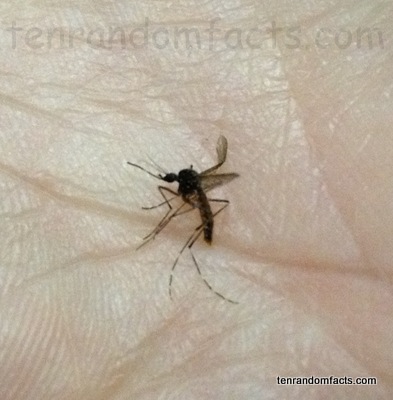Small but pesky.
- Mosquitoes are insects from the family Culicidae, which is the mosquito family.
- Many species of mosquitoes suck blood from vertebrates, such as humans and animals, which is a method of transferring disease to their hosts, although some are harmless as they are not blood feeders.
- The term ‘mosquito’ comes from the Spanish or Portuguese words ‘mosca’ and ‘ito’ meaning ‘little fly’.
- There are over 3,500 species of mosquitoes.
- Most female mosquitoes lay there eggs near or in water.

- Mosquitoes often mate as soon as possible although the female mosquitoes won’t lay eggs until the climate has the right conditions.
- Most mosquitoes live up to one to two weeks after they have become an adult.
- Most mosquitoes need blood to produce eggs and they need sugar for energy, so they feed on nectar and other plant material.
- Mosquitoes can be found nearly anywhere in the world, although they are absent from Antarctica.
- Some mosquitoes carry life threatening diseases like malaria, dengue fever, or other viruses, and it is estimated that over two million people, every year, die from mosquito borne diseases.




